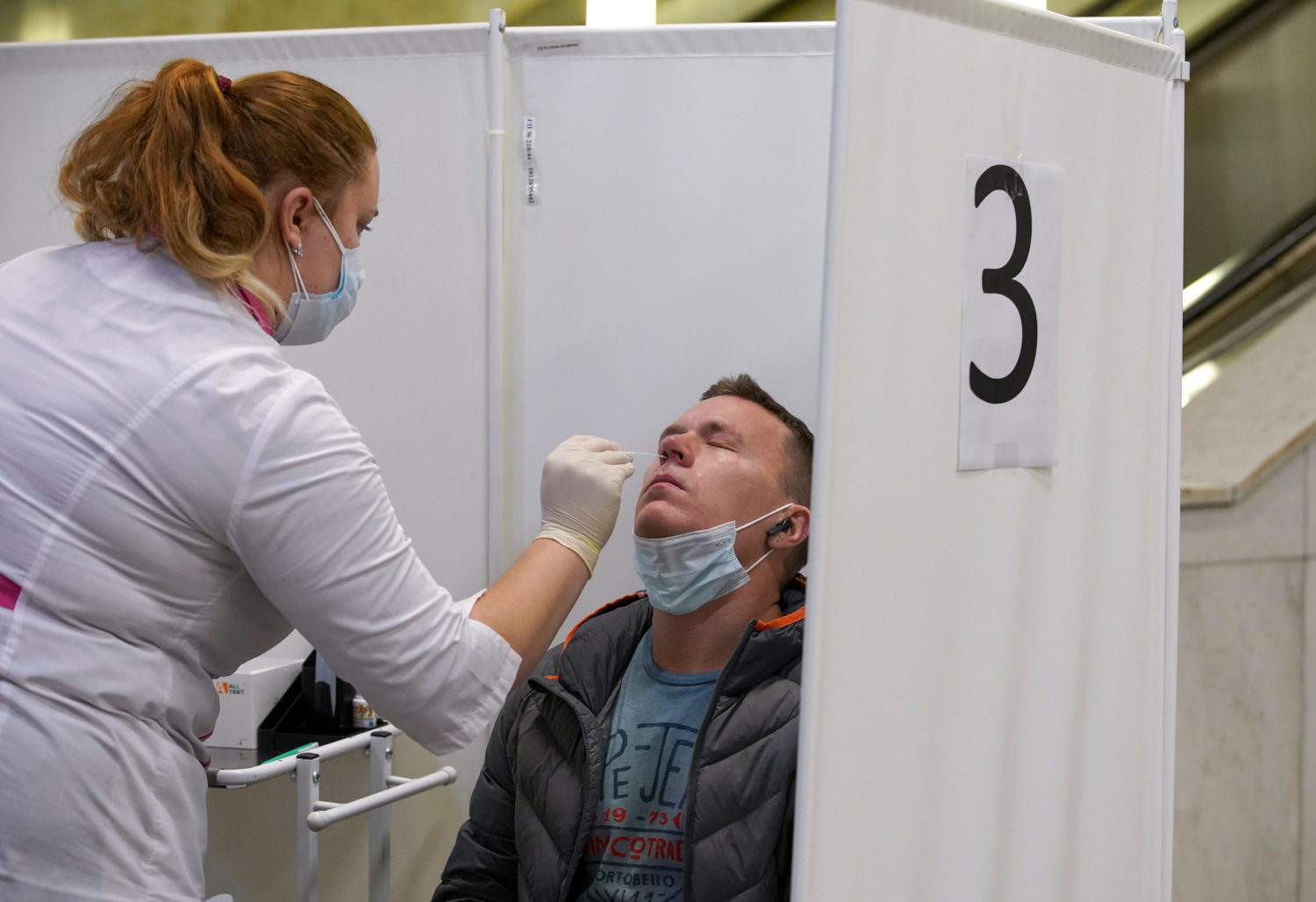
By Francois Murphy
VIENNA (Reuters) – Austria imposed a lockdown on people unvaccinated against the coronavirus on Monday as winter approaches and infections rise across Europe, with Germany considering tighter curbs and Britain expanding its booster program to younger adults.
Europe has again become the epicenter of the pandemic, prompting some countries to consider re-introducing restrictions in the run-up to Christmas and stirring debate over whether vaccines alone are enough to tame COVID-19.
The disease spreads more easily in the winter months when people gather inside.
Europe last week accounted for more than half of the 7-day average of infections globally and about half of latest deaths, according to a Reuters tally, the highest levels since April last year when the virus was at its initial peak in Italy.
Governments and companies are worried the prolonged pandemic will derail a fragile economic recovery.
Austria’s conservative-led government said that about two million people in the country of roughly nine million were now only allowed to leave their homes for a limited number of reasons like travelling to work or shopping for essentials.
But there is widespread skepticism, including among conservatives and the police, about how the lockdown can be enforced – it will be hard to verify, for example, whether someone is on their way to work, which is allowed, or going to shop for non-essential items, which is not.
“My aim is very clear: to get the unvaccinated to get vaccinated, not to lock up the unvaccinated,” Chancellor Alexander Schallenberg told ORF radio as he explained the lockdown, which was announced on Sunday.
The aim is to counter a surge in infections to record levels fueled by a full vaccination rate of only around 65% of the population, one of the lowest in western Europe.
Pensioner Susanne Zwach said the lockdown would be “very, very difficult” to police.
“It is definitely a way of introducing a requirement to get vaccinated through the back door,” she said as she waited in line for her booster shot.
‘STORM OF INFECTION’
Germany’s federal government and leaders of Germany’s 16 states are due to discuss new pandemic measures this week.
Three German state health ministers urged parties negotiating to form a new government to prolong the states’ power to implement stricter measures such as lockdowns or school closures as the seven-day COVID incidence rate hit record highs.
Chancellor Angela Merkel urged unvaccinated people to reconsider their decision in a video message on Saturday.
“Difficult weeks lie ahead of us, and you can see that I am very worried,” Merkel said, speaking in her weekly video podcast.
France, the Netherlands and many countries in Eastern Europe are also experiencing a surge in infections.
Britain is to extend its COVID-19 booster vaccine rollout to people between 40 and 49, officials said on Monday, to boost waning immunity ahead of the colder winter months.
Currently all people 50 and over, those who are clinically vulnerable and frontline health workers are eligible for boosters.
British Prime Minister Boris Johnson said he saw no need to move to a “Plan B” of mask mandates and vaccine passes, even though he was cautious of rising infections in Europe.
“We’re sticking with Plan A,” he said in a broadcast clip on Monday. “But what we certainly have got to recognize is there is a storm of infection out there in parts of Europe.”
Back in Austria, skepticism about vaccines is encouraged by the far-right Freedom Party, the third-biggest in parliament, which is planning a protest against the government’s coronavirus policies on Saturday.
Party head Herbert Kickl, 53, said in a Facebook posting he had tested positive for COVID-19. He has mild symptoms and no fever but will not be able to attend Saturday’s protest because of quarantine requirements.
(Additional reporting by Lisi Niesner in Vienna, Josephine Mason and Alistair Smout in London, Emilio Parodi in Milan and Victoria Waldersee and Maria Sheahan in Berlin; Writing by Nick Macfie, Editing by William Maclean and Philippa Fletcher)












